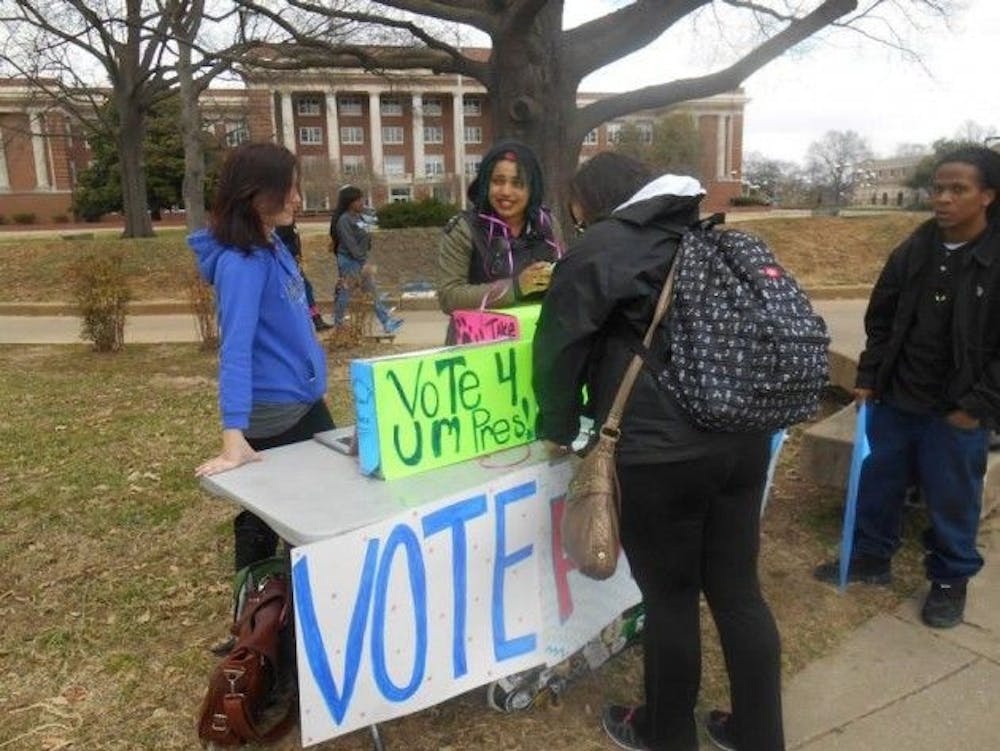This past week the Progressive Student Alliance has been voicing their concerns about a decision that could directly affect students, but that students can't directly affect-the decision of the next University of Memphis president.
Since former U of M President Shirley Raines left during summer of 2013, R. Brad MartinHas served as interim president. Now the University is in the process of finding a new president and the choices have been narrowed down to four candidates.
These candidates are Guy Bailey, former president of the University of Alabama; Sharon Gaber, provost and vice chancellor for Academic Affairs at the University of Arkansas; George W. Hynd, provost and executive vice president for Academic Affairs at the the College of Charleston; David Rudd, provost for the U of M.
"Since many students don't know a lot about these people, we decided to help inform them and give the students a chance to have a say on who they want to be the president," Vanlyn Turner-Ramsay, sophomore psychology major, said.
Although emails were sent informing the students about the University's choices for the candidates, who each had a public forum for students to ask questions, Turner said these weren't clearly broadcasted enough to students.
She said this led the PSA to take action on informing the students about the candidates earlier this week. The organization set up tables around campus and informed students about the candidates, directed them to the University's website, which features their interviews, and even held a mock-vote to see who students would vote for if given the option.
"There are certain things that the campus could do to get students more involved. They could post signs, actively promote information about the candidates and have conversations with students about the election, as opposed to having one email and one forum for each candidate," Turner-Ramsay, former chairperson of PSA, said.
Hanna Callicutt, another member of PSA, said that by only having one forum for each candidate, many students didn't have the chance to see all of the candidates due to conflicting class schedules.
"A lot of students don't care if it's not presented directly in front of them. They're stressed and busy with classes. They don't have enough time to go see what our University will become," Callicutt, undecided freshman, said
Since the students don't actually have the chance to vote, Ramsay said the whole purpose of holding this mock-vote was symbolically to show campus officials that students do care about the decision about the next president.
"We're important because we serve to educate, inform and fight for human rights in our community and on our campus. We're here to make sure students get more out of their college experience than just a degree," Ramsay said. "We hope to promote awareness of what's going on around people and we strive to have a better community."
The PSA will be posting their results through their Facebook page and will also be holding a campus worker speak-out on April 17, which will have campus employees speaking out about their experiences working for the University.
"We give a voice to the students of our campus. It's just important for people to be aware of what's going on around them. Students should know where they are getting their education from and how the University is functioning," Callicutt said. "If students know what's going on, they can help make it a better place."




